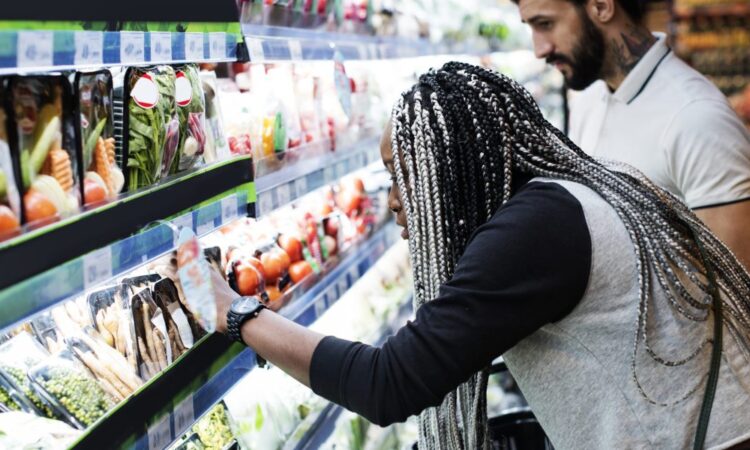
Inflation in U.K. shops has fallen to its lowest rate in more than two years and below a crucial 2% benchmark, in the latest sign that the country’s troubled economy is normalizing from a hectic post-COVID period.
Shop inflation fell to 1.3% in March, according to the latest data from the British Retail Consortium (BRC). That signals the lowest rate for the measure since
Food inflation, meanwhile, fell to 3.7% in March, its lowest level since April 2022. It’s a remarkable comedown from a year ago when the same figure came in at a record 15.7% reading in April 2023.
All signs point to a continued deceleration in prices after a gruesome two-year stretch for inflation, which has forced the Bank of England to intervene by bringing interest rates to generational highs.
It’s a promising retreat for an inflation measure that looked out of control a year ago, as a collection of pressures ranging from Russia’s invasion of Ukraine to COVID-19 supply chain blockages pushed up costs, particularly for perishable foods.
In February, the U.K.’s official measure of inflation, the Consumer Prices Index (CPI), came in at 3.4%. The reading came in below economists’ predictions, aided by falling grocery and restaurant prices.
Momentum is moving toward inflation hitting its 2% target in the coming months, with pressure falling on the Bank of England to cut interest rates and stoke growth.
While cooling macro pressures are partly to credit with the fall in prices, shoppers can also thank a price war between the U.K.’s biggest retailers, according to BRC Chief Executive Helen Dickinson.
“Shop price inflation eased to the lowest level since December 2021 last month as retailers continued to compete fiercely to bring prices down for their customers,” Dickinson wrote.
It would be difficult to match the eyewatering price rises from a year ago, but it still points to a much-improved environment for both retailers and shoppers in the U.K.
“A year ago, food inflation was 15% so this was to be expected,” said Mike Watkins, head of retailer and business insight at NielsenIQ, which carried out the survey with the BRC.
“But it is also helped by intense competition amongst the supermarkets as they look to drive footfall, with focussed price cuts and promotional offers earlier in the month for Mother’s Day and now again in the weeks leading up to Easter.”
Shoppers getting happier
British shoppers are increasingly finding it difficult to grumble as they walk down the grocery aisle, even after the stresses of an Easter period marred by rising cocoa prices.
The latest inflation reading from the BRC seems to reflect a changing attitude among British shoppers.
In March, data from GfK suggested this is the best consumers have felt about their personal finances since December 2021, which last month came in at a positive reading.
“This is welcome news given the challenges faced by Britons of fiscal drag, higher costs for fuel, rising council taxes, and utilities eroding any increases in wages or other income,” Joe Staton, client strategy director at GfK said last month.
Overall consumer confidence, however, remained negative and didn’t improve on February’s figure.
Those consumers will be hoping for a continued decline in inflation with the hope that borrowing costs will follow.
Higher interest rates have proved a drag on the U.K. economy, which slipped into a technical recession at the end of 2023.
But while falling inflation may signal an end to recent gloom, that’s far from a certainty.
‘The disinflation trend has continued for the tenth straight month. This is positive for the current inflation picture, however, things are less clear for the future,” said Kathleen brooks, research director at XTB.
“Commodity prices have been extremely volatile in recent weeks cocoa prices reached a record high and oil prices have climbed to their highest level in 5 months. This is likely to push up prices in the future and the disinflation trend may not last for much longer.”






